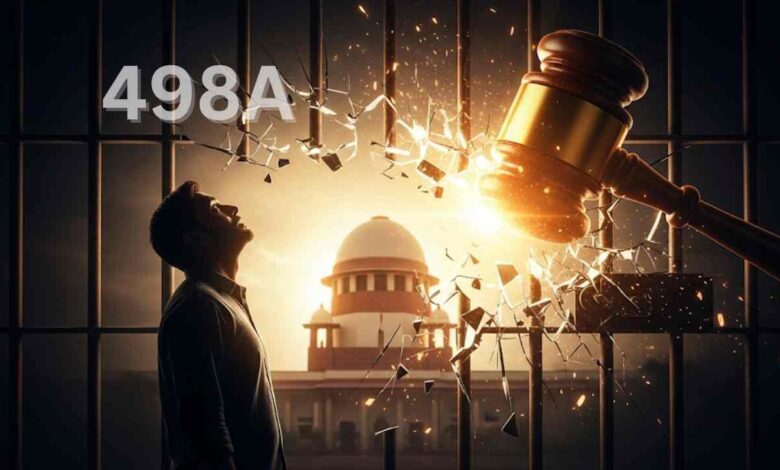Misuse of Section 498A Stopped! What Did the Supreme Court Say to Give Relief to Husbands?

498A: In a landmark judgment aimed at preventing the misuse of Section 498A of the Indian Penal Code—a law designed to protect women from domestic violence—the Supreme Court has delivered a historic verdict. This new directive comes as a major relief for husbands, acting as a safeguard against the misuse of the law. Let’s delve into the details of this new guideline.
New Guidelines from the Supreme Court
This groundbreaking ruling from the Supreme Court opens a new chapter in preventing the misuse of Section 498A. From now on, the police cannot immediately arrest a husband based solely on a woman’s complaint. The main points of the directive are:
- No Immediate Arrest: Upon the filing of a complaint under Section 498A, the police can no longer arrest the husband immediately.
- Two-Month Grace Period: Police are prohibited from making an arrest for the first two months after an FIR is filed.
- Role of the Family Welfare Committee: A ‘Family Welfare Committee’ must be established in every district. All complaints under Section 498A will first be sent to this committee.
- Investigation Based on Committee’s Report: The committee will review the complaint, prepare a report, and only based on that report can the police proceed with their investigation and take further action.
This directive essentially upholds a guideline previously established by the Allahabad High Court in 2022. The judgment is being considered a significant step in addressing the complexities of marital relationships and social issues like false accusations.
The Case Behind This Judgment
A specific case prompted the Supreme Court’s intervention. A woman had filed six serious criminal cases against her husband and his family under Section 498A, including charges of rape and attempt to murder. As a result, the husband spent 109 days in jail, and his father spent 103 days. Subsequently, all allegations were proven to be false, and the Supreme Court quashed all criminal charges. Furthermore, using Article 142 of the Constitution, the court dissolved the marriage, stating that the immense suffering endured by the husband and his family could not be compensated.
Get Instant News Updates!
Join on TelegramExceptions
However, this directive is not applicable in all cases. If the allegations are of a serious nature, such as an attempt to murder, or where the potential sentence is more than seven years, this rule will not apply. This ensures that genuinely victimized women are not deprived of legal protection.
This new directive, on one hand, ensures the protection of women, and on the other, protects husbands from the clutches of false accusations, which will contribute to building a healthier society.

